Digital finance is changing the lives of young women in Cambodia

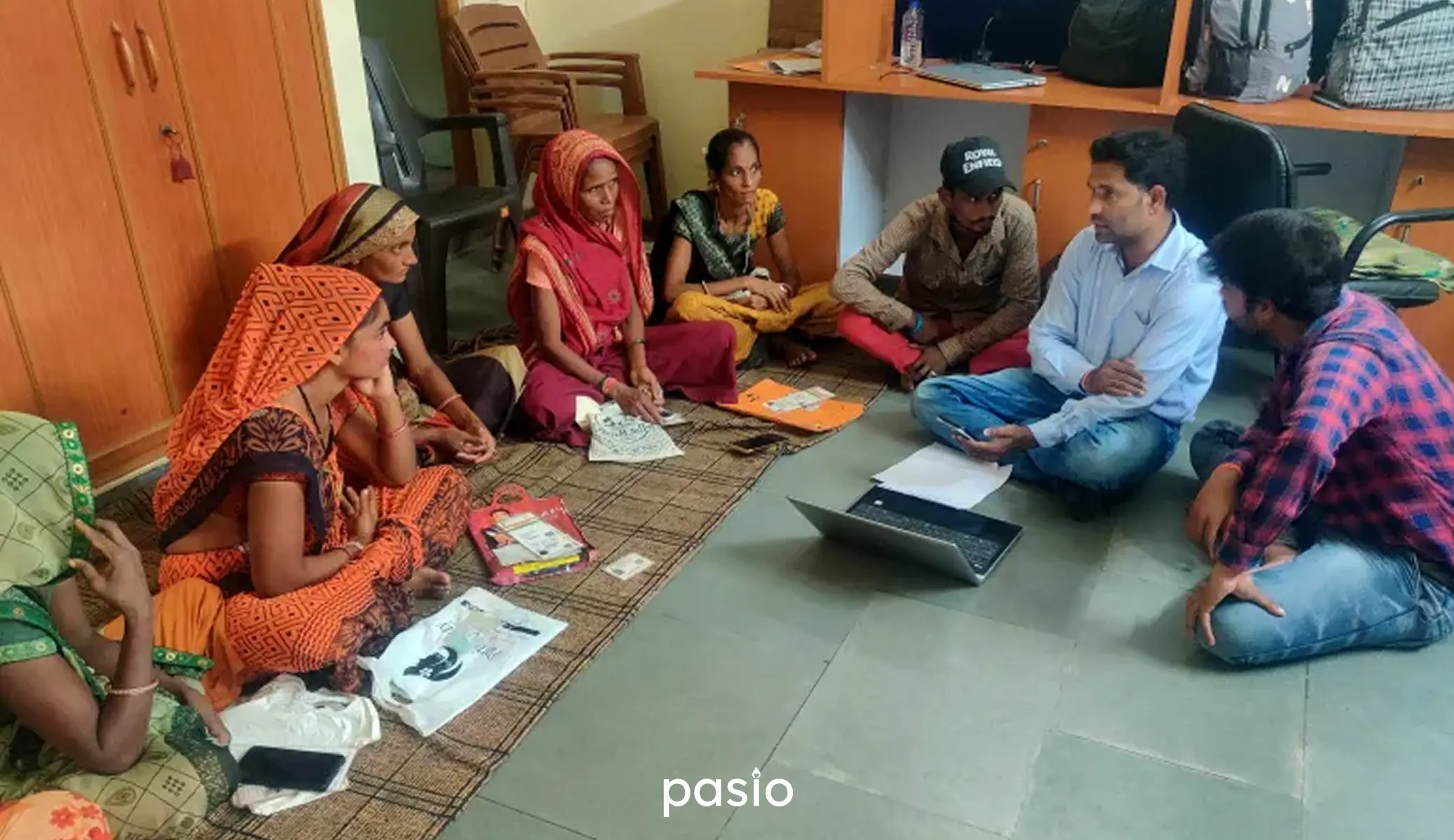
In remote villages and rural communities in Cambodia, women’s lives are quietly and steadily changing. These transformations don’t make noise, but they carry stories of economic empowerment, personal growth, and hope born from hardship. At the heart of this change stands the digital platform “Pasio,” launched by the Education Above All Foundation through its “Silatech” program, in partnership with the Japanese Company Gojo & Company Inc.
“Pasio” is a model for digital technologies that serve vulnerable communities. It delivers loans and skills through a user-friendly application, which is the digital platform that offers both financing and guidance.
The project, “Economic Empowerment of Youth through Digital Financial Inclusion”, in other words “Pasio”, aims to support around 90,000 young men and women in Cambodia, India, and Sri Lanka, by providing digital financing tools, community learning platforms, smart lending programs, and supportive online communities, creating an environment that encourages sustainable entrepreneurship.
Ernest Dube, a project development specialist with Silatech at Education Above All, stated, “What we’ve seen in Cambodia goes beyond simply offering digital financial services. We’ve seen women rediscover themselves as leaders, decision-makers, and community influencers.”
He added that Pasio, born out of the partnership between Education Above All and Gojo & Company Inc., was not just a financing tool but a bridge between ambition and reality, between dreams and possibilities. “Every woman who built a business, revived a farm, or transformed a small shop into a source of inspiration is living proof that technology, when designed with a human spirit, can truly change lives.”
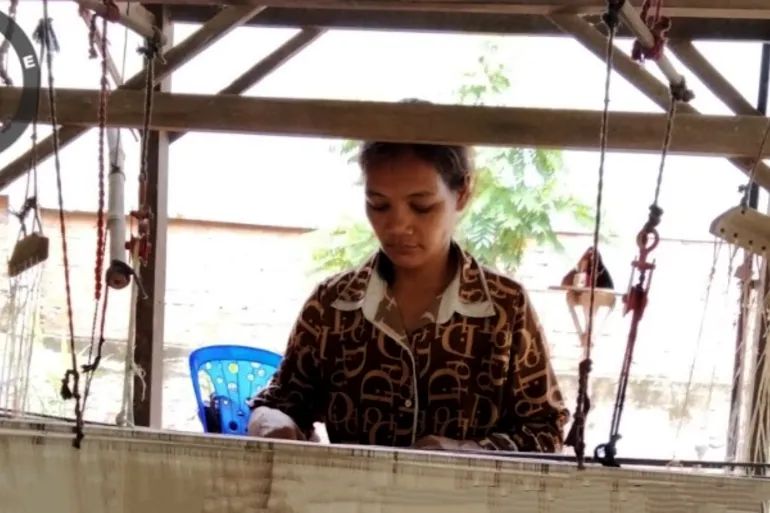
From Poverty to Success
In one of Phnom Penh’s neighborhoods, lives Kong Ros (35), whose eyes reflect both exhaustion and determination. For years, she ran a small textile business from a modest room in her home, struggling with life’s pressures and market challenges to make ends meet for her family.
But the road was not paved with the silk she wove. It was lined with debt, fear of tomorrow, and a lack of resources to grow. “I worked down to the last thread of my heart,” she said, “but the profit wasn’t enough, and the worry never left me.”
A turning point came when a field/loan officer visited and introduced her to Pasio. She had no knowledge of digital finance, but for the first time, she felt someone was reaching out with trust.
Through a smart app and a supportive community platform, Kong received a loan that allowed her to buy a new loom and high-quality silk threads. But more than that, she felt she wasn’t alone. “They spoke of success in a language I understood, step by step. I wasn’t afraid this time.”
Within months, Kong’s income increased by $100, and her sales rose by 40%. She wasn’t just weaving fabric anymore; she was weaving a new future for her family. Now, she plans to train other girls in her neighborhood, just as someone once opened a door for her.
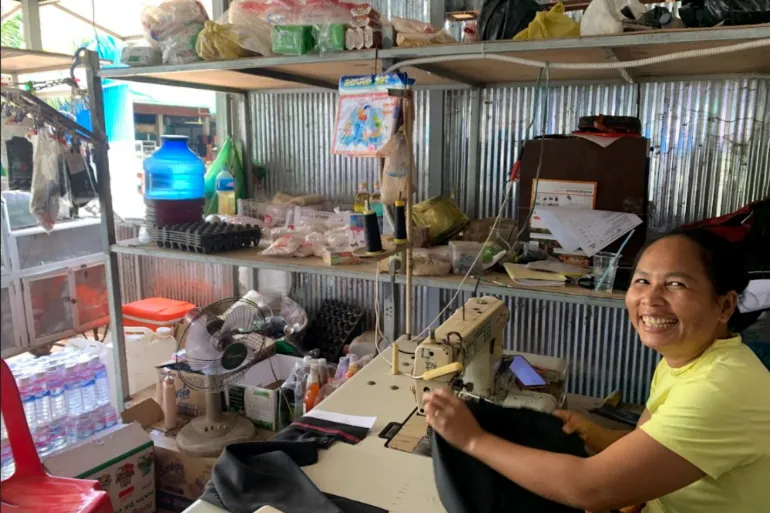
In a quiet village amidst the rice fields of Kandal Province, Sourn Chamnan (35) begins her day before sunrise. She opens her small wooden shop and checks her crops, catching her breath after years of drought and hardship. With the spirit of a trader and the hands of a farmer, she patiently battles to sustain her only livelihood.
She used to run a basic shop for village essentials alongside tending her small farm. But outdated equipment and low inventory made her fear she might have to close both her shop and her dreams.
“I’d watch neighboring shops grow, while I couldn’t even fix my water pump,” she said. “My dream was simple: to farm two seasons and see my shop shelves full.” Hope came unexpectedly when she discovered Pasio.
She felt this initiative was different. The loan came with digital support and an interactive learning community of youth from similar backgrounds. She applied through the app and received the loan.
Confidently, she replanted her land, repaired long-broken equipment, and bought small refrigerators for her shop. In a few months, customers returned and profits grew again.
“What I needed wasn’t just money, I needed someone to believe a woman like me could run both a store and a farm.” Now, she plans to expand her farm and diversify shop products, but most importantly, she’s become a role model for girls in her village.

In Kampong Chhnang, along the Tonle Sap River, life was hard for Veng Kunthia (28), a mother of two and wife to a small scrap shop owner. The days weren’t easy, and the income wasn’t enough. As the city expanded, her dream of a stable life shrank.
Veng wasn’t just a housewife; she watched her husband’s shop suffer in slow seasons, with unsold scrap piling up and no money for upgrades. “I saw the fatigue in my husband’s eyes,” she said, “and felt if I didn’t step in, we might lose everything.”
Then came the solution. During a field visit, she learned about Pasio, not just a loan provider but a full ecosystem combining financing, training, and a digital community of young entrepreneurs sharing knowledge and support.
She got a small loan and invested it wisely, buying new tools, renovating part of the shop, and adding scrap sorting services that attracted new customers. “Every dollar I invested brought back hope in multiples. I didn’t feel alone anymore.”
She added, “Pasio taught me that knowledge is as vital as money. The tips I read in the app, and stories others shared made me believe I could run a full business on my own.”
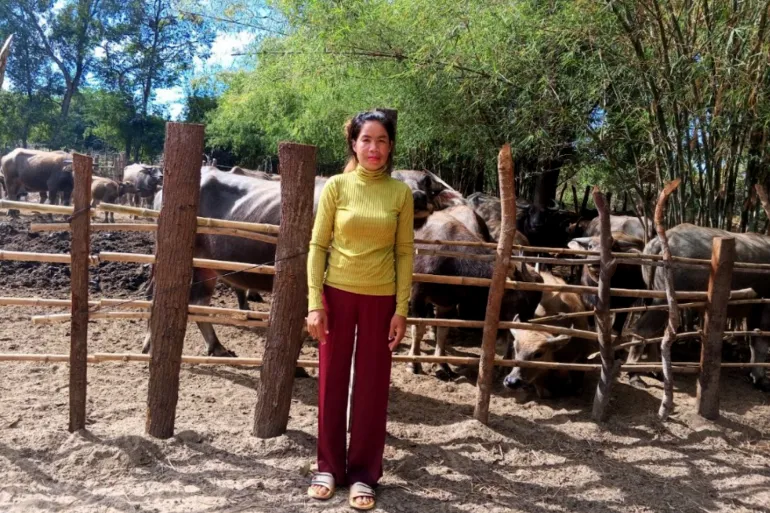
In a quiet village in Kampong Thom, Chea Bagnvorn rises with the first sunlight, puts on her bamboo hat, and checks on her buffalo, her companion and livelihood. A 33-year-old mother of three, she shares the daily grind with her farmer husband on a land that rewards only the relentless.
Last year, her world nearly collapsed, the crops dried up, fodder prices soared, and her equipment began to break down. “Will this be the end of the dream?” she often wondered.
The answer came at a community meeting where she learned about Pasio. Though once skeptical about loans, she realized Pasio offered more knowledge, guidance, and a real support network.
She applied, received a small loan, replanted her crops, repaired equipment, and stocked up on animal feed. Most importantly, she began learning from Pasio’s livestock care content. “I felt like I was studying in an agricultural university, from my phone,” she said. “I don’t wait for luck now, I act with knowledge.”
Her monthly income rose by $150. The family eats better, her husband is re-inspired, and she’s now a reference point for other women in her village asking about Pasio.
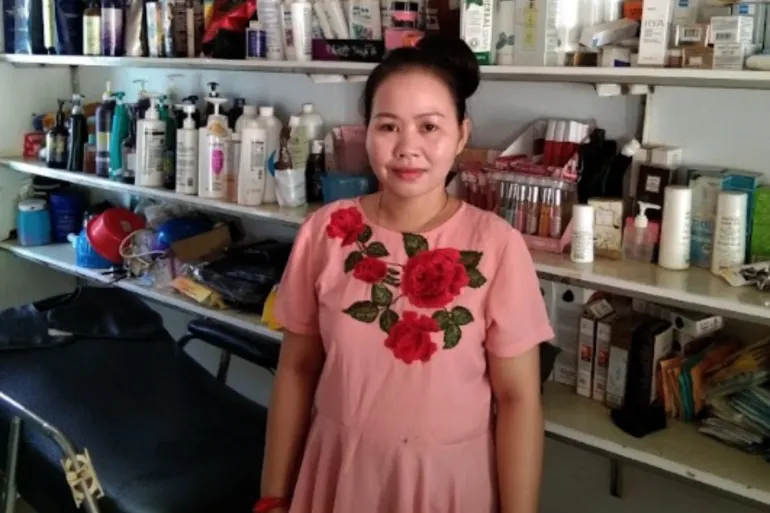
In a hidden corner of Siem Reap, behind a modest sign reading “Chandy’s Beauty Salon,” lies the story of a woman who refused to let circumstances define her.
Kolhai Chandy (32), mother of two, started her business with just one pair of scissors, an old chair, and a few basic creams. She had no capital, no business background, but she had determination. “I believe beauty isn’t just appearance, it’s in our resilience,” she said.
As demand from local customers grew, she felt it was time to expand. But she couldn’t afford even a new mirror. Then she heard about Pasio, a digital learning platform connecting women with knowledge in beauty, marketing, and business.
She received a loan, bought new beauty products, added perfumes and creams, revamped her store, and began tracking income and expenses.
The results were astounding. Her customer base doubled, and women started seeking her out for products unavailable in big markets. Now she’s planning to open a second branch and train a young assistant, proving her success is not just personal but a message to all women in her community.
Notably, Education Above All Foundation’s strategic partners, most prominently the Qatar Fund for Development, play a foundational role in supporting the organization’s vision to ensure inclusive education and economic empowerment for youth worldwide. Through these partnerships, the reach of initiatives expands, their sustainability strengthens, and they reach the most vulnerable communities.
Originally published by Al Jazeera, this article has been translated and reposted here to make it accessible to our English-speaking community.

.webp)
.webp)
.webp)